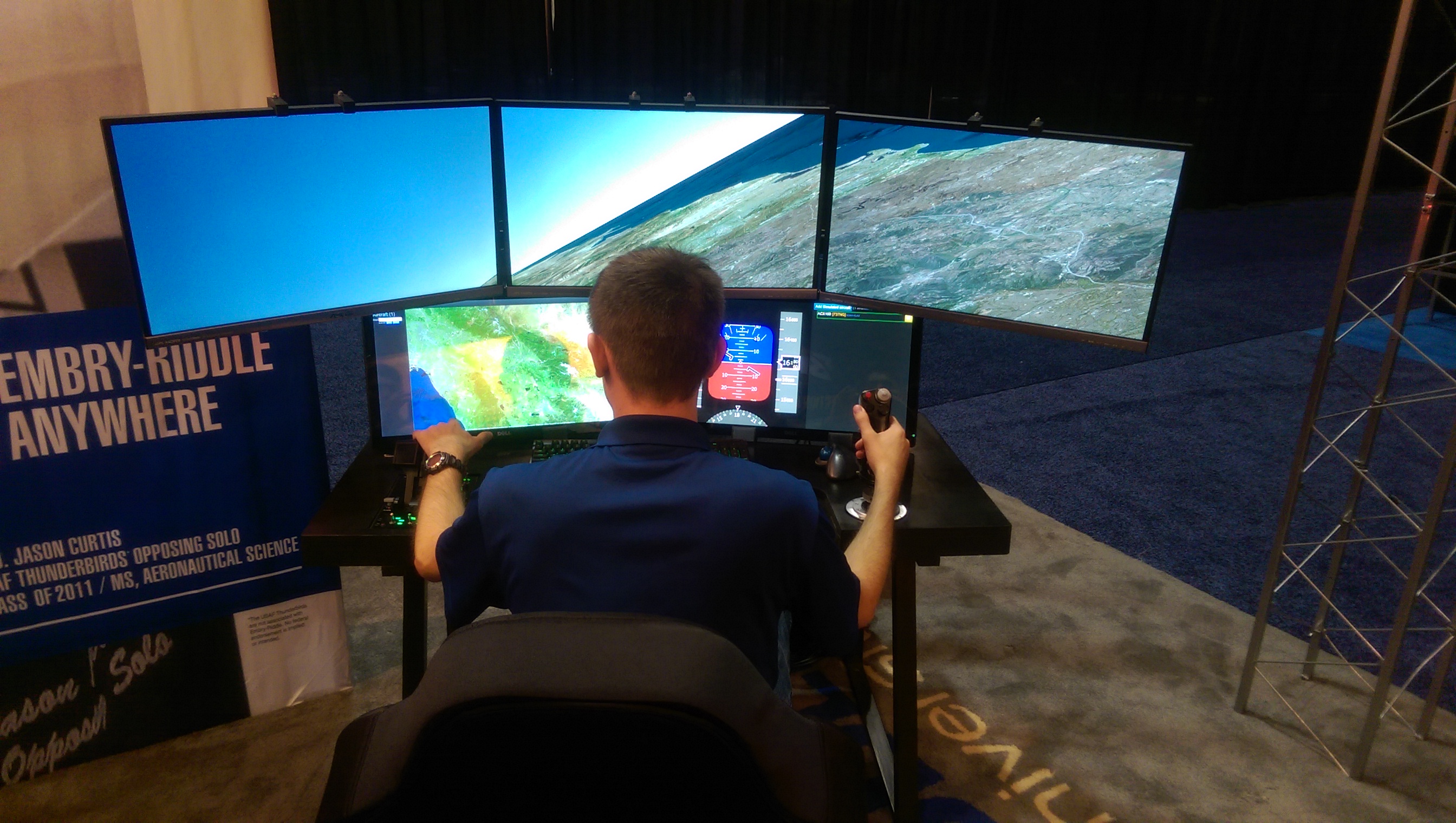The Human Factors Considerations of UAS Procedures and Control Stations project is a cross-institution collaboration focusing on analyzing and recommending improvements to unmanned systems’ work station designs, environments, and ergonomics; UAS pilot and crew member procedures; and operational requirements for various size classes of UAS. The project draws on subject matter experts from the ASSURE Centers of Excellence at Embry-Riddle Aeronautical University, Drexel University, Kansas State University, Mississippi State University, the Ohio State University, University of North Dakota, and Sinclair Community College.
Funded by the FAA, the project seeks to applies the functional allocation analysis research performed by ASSURE toward the design of control stations. Ergonomics, environmental health and safety, and mobility are also considered. Control station design mockups will be used to obtain feedback and allow the team to iterate on design. Simulation will be used to provide verification and validation of the design.
Given the control station design guidelines and functional allocation analysis, researchers will also develop pilot and crew procedures for routine and contingency procedures. Non-control station procedures will also be considered by non-pilot crew members. Verification and validation of these procedures will be performed using simulation.
Principal Investigator: Richard Stansbury, Director, ASSURE Center of Excellence at Embry-Riddle
About Embry-Riddle Aeronautical University: Embry-Riddle Aeronautical University is a core and founding member of a multi-university coalition comprised of 21 research universities, the ASSURE FAA Center of Excellence for Unmanned Aircraft Systems. Embry-Riddle is one of the first schools in the nation to offer a degree in UAS. ERAU’s Prescott and Daytona Beach campuses offer a Bachelor of Science in Unmanned Aircraft Systems Science. The Daytona Beach Campus offers a Master of Science in Unmanned and Autonomous Systems Engineering. The university’s Worldwide campus offers a Master of Science in Unmanned Systems, a Master of Aeronautical Science with UAS Specialization and a Bachelor of Science in Unmanned Systems Applications.


Leave A Comment